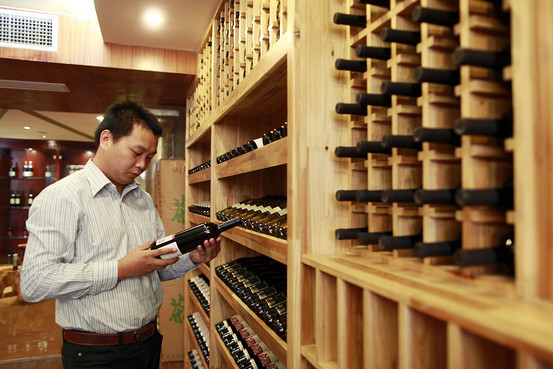
China’s economic crisis to benefit wine longer-term
The double whammy of an already slowing economy compounded by coronavirus could accelerate consumer demand for reliable and legitimate wine brands in China.
This is one of the key predictions running through Wine Intelligence’s newly released China Wine Landscape report, which suggests that “China’s wine consumers have become more thoughtful, educated and less likely to buy product that is overpriced and poor quality”.
The report reasons that after years of having modest quality wines cleverly packaged and promoted as luxury products at exorbitant prices, alongside the widespread incidence of outright fakes, the economic slowdown will feed into a demand for true quality and worth with an increasingly cautious but more wine-savvy consumer.
While feedback gathered from China-based suppliers suggests that volumes will continue to dip and for some time, the combined effect of more in-home consumption and ongoing growth in ecommerce will benefit mainstream-priced brands.
“Ecommerce will continue to make advances, building on its fundamental attributes of convenience, price and quality transparency, and stickiness in terms of consumer relationship management,” said Wine Intelligence’s Richard Halstead in a summary of the report’s main findings.
“The on-premise wine trade will suffer the most, and the longest, as consumers show deep and lasting reluctance to go back to restaurants, particularly for the large celebrations that are often accompanied by expensive wine purchases. It will eventually come back, but most likely in the form of more casual dining experiences.”
However, the above, coupled with the shift away from ostentatious gifting, to a “more mainstream, educated and value-conscious market focused on affluent, educated professionals in urban areas”, will hasten a growing maturity in the market.
This, in turn, predicts the report, will favour both recognisable brands that consumers can trust, but also enhance the visibility – over time – of more niche categories, such as organic wines, rosé, sweeter whites and sparkling wines.
“Online retail has enabled consumers to shop around for good prices, and also kept retailers honest in terms of the quality and reliability of the products they sell. In such a competitive space, a series of negative WeChat reviews can seriously dent a retailer’s reputation,” added Halstead.
As and when China emerges from its current economic and health woes it will no longer be the “wild gold rush sector” of before, but rather a more stable and less-high-end focused scene, is the conclusion drawn.
Keywords:
- China
- consumption
- wine brands
- Wine Intelligence
- wine market
- Covid-19
- economic crisis
- China Wine Landscape report 2020




